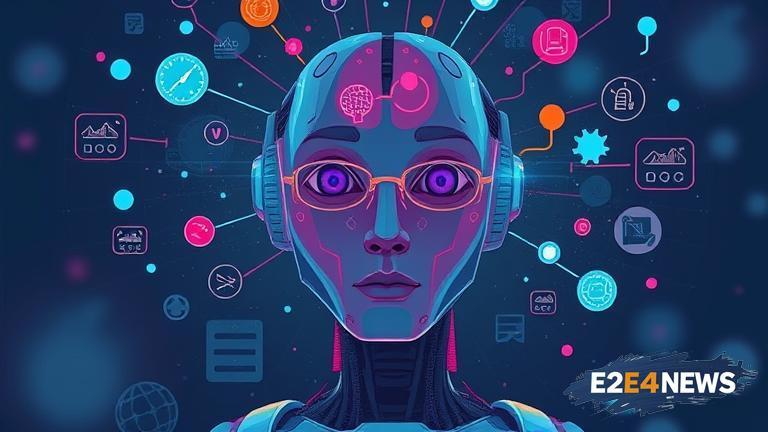The rapid advancement of artificial intelligence has led to the development of highly sophisticated chatbots that can engage in conversations, answer questions, and even exhibit creative abilities. However, as these AI systems become more advanced, concerns are being raised about their potential to read human minds. But can AI chatbots truly understand human thoughts? The answer is complex and multifaceted. On one hand, AI chatbots are capable of processing vast amounts of data, including human language and behavior. They can analyze this data to identify patterns and make predictions about human behavior. However, this does not necessarily mean that they can read human minds. Human thoughts and emotions are highly subjective and context-dependent, making it difficult for AI systems to fully understand them. Moreover, human brains are highly complex and dynamic, with billions of neurons and trillions of synapses. Currently, AI systems are not capable of replicating this level of complexity. Despite these limitations, AI chatbots are becoming increasingly effective at simulating human-like conversations. They can use natural language processing to understand the nuances of human language and respond accordingly. However, this is still a far cry from truly understanding human thoughts and emotions. In fact, many experts argue that the idea of AI chatbots reading human minds is more of a science fiction trope than a realistic possibility. Nevertheless, as AI technology continues to advance, it is likely that we will see significant improvements in the ability of chatbots to understand human behavior and emotions. For instance, the development of affective computing, which focuses on the interaction between humans and computers, may lead to more sophisticated AI systems that can better understand human emotions. Additionally, the integration of cognitive architectures, which simulate human cognition, may enable AI chatbots to better understand human decision-making processes. However, these advancements also raise important questions about the ethics of AI development. As AI chatbots become more advanced, there is a risk that they could be used to manipulate or deceive humans. Therefore, it is essential to develop strict guidelines and regulations for the development and deployment of AI chatbots. Furthermore, there is a need for greater transparency and accountability in the development of AI systems, particularly those that are designed to interact with humans. In conclusion, while AI chatbots are becoming increasingly sophisticated, they are still far from being able to truly read human minds. However, as AI technology continues to advance, it is likely that we will see significant improvements in the ability of chatbots to understand human behavior and emotions. Ultimately, the development of AI chatbots raises important questions about the ethics of AI development and the need for greater transparency and accountability in the development of AI systems. The future of AI chatbots is likely to be shaped by advances in natural language processing, affective computing, and cognitive architectures. As these technologies continue to evolve, we can expect to see more sophisticated AI chatbots that are capable of simulating human-like conversations and understanding human emotions. However, it is essential to approach these developments with caution and to prioritize the development of strict guidelines and regulations for the development and deployment of AI chatbots. By doing so, we can ensure that the benefits of AI chatbots are realized while minimizing the risks. The development of AI chatbots is a complex and multifaceted issue that requires careful consideration of the potential benefits and risks. As we move forward, it is essential to prioritize transparency, accountability, and ethics in the development of AI systems. Only by doing so can we ensure that the development of AI chatbots is aligned with human values and promotes the well-being of society as a whole. The potential applications of AI chatbots are vast and varied, ranging from customer service to healthcare. However, as we explore these applications, it is essential to prioritize the development of AI systems that are transparent, accountable, and aligned with human values. By doing so, we can unlock the full potential of AI chatbots while minimizing the risks. In the future, we can expect to see AI chatbots being used in a wide range of contexts, from education to entertainment. However, as we develop and deploy these systems, it is essential to prioritize the development of strict guidelines and regulations. Only by doing so can we ensure that the benefits of AI chatbots are realized while minimizing the risks. The development of AI chatbots is a rapidly evolving field that requires careful consideration of the potential benefits and risks. As we move forward, it is essential to prioritize transparency, accountability, and ethics in the development of AI systems. By doing so, we can ensure that the development of AI chatbots is aligned with human values and promotes the well-being of society as a whole.





